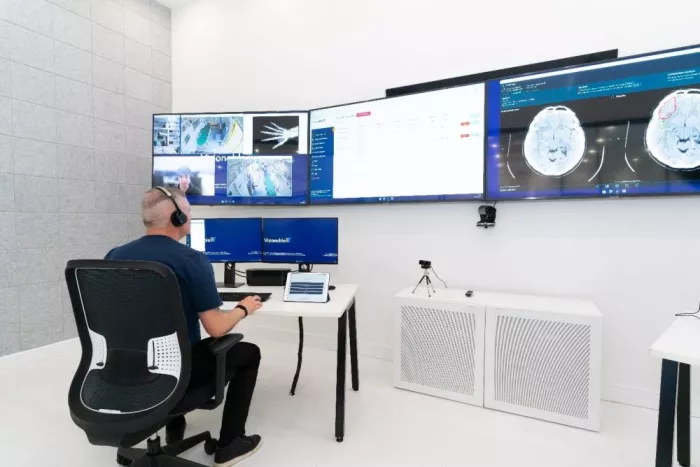Bipolar disorder is a complex mental health condition characterized by alternating periods of mood elevation and depression. Manic episodes are a hallmark feature of bipolar disorder, during which individuals experience intense periods of heightened energy, euphoria, and impulsivity. While the exact cause of bipolar manic episodes is not fully understood, there are several known triggers and influencing factors that can contribute to their onset. In this article, we’ll explore these triggers in detail, shedding light on the complex interplay of biological, environmental, and psychological factors that can precipitate manic episodes in individuals with bipolar disorder.
Defining Bipolar Manic Episodes
Before we delve into the triggers of bipolar manic episodes, let’s first define what they are. Manic episodes are one of the two primary mood states experienced by individuals with bipolar disorder, the other being depressive episodes. During a manic episode, individuals may experience a range of symptoms, including:
1. Elevated mood or irritability
2. Increased energy and activity levels
3. Decreased need for sleep
4. Racing thoughts and rapid speech
5. Grandiose beliefs or delusions
6. Impulsivity and reckless behavior
7. Poor judgment and decision-making
Manic episodes can vary in severity and duration, ranging from mild to severe and lasting for days to weeks. Understanding the triggers and influencing factors that can precipitate manic episodes is essential for managing the condition and reducing the risk of relapse.
Exploring Triggers of Bipolar Manic Episodes
Now, let’s explore some of the common triggers and influencing factors that can contribute to the onset of bipolar manic episodes:
1. Stressful Life Events
Stressful life events, such as relationship problems, financial difficulties, work-related stress, or major life changes, can trigger manic episodes in individuals with bipolar disorder. The heightened emotional and physiological response to stress can disrupt the delicate balance of neurotransmitters in the brain, leading to mood instability and exacerbating symptoms of mania.
2. Disrupted Sleep Patterns
Disrupted sleep patterns, including insomnia, irregular sleep schedules, or sleep deprivation, can trigger manic episodes in individuals with bipolar disorder. Sleep disturbances can disrupt the body’s circadian rhythms and interfere with the regulation of mood and energy levels, increasing the risk of manic symptoms.
3. Substance Use and Abuse
Substance use and abuse, including alcohol, stimulants, or illicit drugs, can trigger manic episodes in individuals with bipolar disorder. The effects of substances on the brain’s neurotransmitter systems can destabilize mood and exacerbate symptoms of mania, leading to heightened arousal, impulsivity, and risk-taking behavior.
4. Medication Non-Adherence
Non-adherence to medication regimens, including skipping doses or discontinuing treatment without medical supervision, can trigger manic episodes in individuals with bipolar disorder. Medications prescribed for bipolar disorder, such as mood stabilizers or antipsychotics, are essential for stabilizing mood and preventing relapse. Failure to adhere to prescribed medication regimens can disrupt the balance of neurotransmitters in the brain and increase the risk of mood instability.
5. Seasonal Changes
Seasonal changes, particularly the transition from winter to spring, can trigger manic episodes in individuals with bipolar disorder. This phenomenon, known as “seasonal affective disorder with a seasonal pattern,” is characterized by the onset of manic or depressive symptoms during specific times of the year. The increased daylight and changes in circadian rhythms associated with seasonal transitions can disrupt mood regulation and contribute to the onset of manic symptoms.
6. Hormonal Changes
Hormonal changes, such as those associated with the menstrual cycle, pregnancy, or menopause, can trigger manic episodes in individuals with bipolar disorder. Fluctuations in hormone levels can affect neurotransmitter activity in the brain and influence mood regulation, leading to mood instability and exacerbating symptoms of mania.
7. Interpersonal Conflict
Interpersonal conflict, including conflicts with family members, friends, or coworkers, can trigger manic episodes in individuals with bipolar disorder. The emotional and psychological stress of interpersonal conflict can disrupt mood regulation and exacerbate symptoms of mania, leading to increased irritability, agitation, and impulsivity.
8. Changes in Routine or Environment
Changes in routine or environment, such as travel, relocation, or changes in daily activities, can trigger manic episodes in individuals with bipolar disorder. Disruptions to familiar routines or environments can be destabilizing and increase the risk of mood instability and exacerbate symptoms of mania.
Managing Bipolar Manic Episodes
While the triggers and influencing factors of bipolar manic episodes can vary from person to person, there are several strategies that individuals with bipolar disorder can use to manage their symptoms and reduce the risk of relapse:
1. Establishing a regular sleep schedule and practicing good sleep hygiene
2. Avoiding substance use and abuse, including alcohol and illicit drugs
3. Adhering to prescribed medication regimens and attending regular appointments with healthcare providers
4. Engaging in stress-reduction techniques, such as mindfulness meditation, deep breathing exercises, or yoga
5. Building a strong support network of family, friends, and mental health professionals
6. Seeking professional help and support at the first sign of symptoms or relapse
By understanding the triggers and influencing factors of bipolar manic episodes and implementing effective coping strategies, individuals with bipolar disorder can effectively manage their condition and lead fulfilling and productive lives. It’s essential for individuals with bipolar disorder to work closely with healthcare providers to develop personalized treatment plans that address their unique needs and circumstances. With proper treatment and support, individuals with bipolar disorder can achieve stability and thrive despite the challenges posed by the condition.
[inline_related_posts title=”You Might Be Interested In” title_align=”left” style=”list” number=”6″ align=”none” ids=”7296,7293,7290″ by=”categories” orderby=”rand” order=”DESC” hide_thumb=”no” thumb_right=”no” views=”no” date=”yes” grid_columns=”2″ post_type=”” tax=””]
































